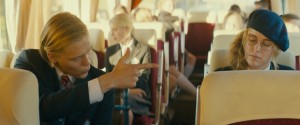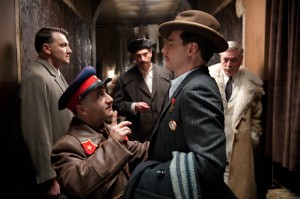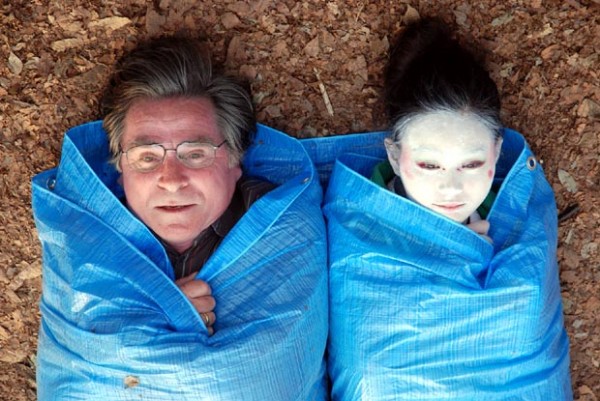Goethe-Institut proves that German humor exists with film series
Films from Germany are “typically German”: cold, conventional and overly intellectual – or at least a lot of people think so. The Goethe-Institut tries to break this stereotype with its latest film series of German tragicomedies entitled Heartbreakingly Comical.
Every Wednesday from June 24 to July 8, the Goethe-Institut will be screening three tragicomedy movies in its premises for free. Tragicomedy films are interplays of the sad and the funny wherein the tragic elements are softened by humor and tragedy breaks the humorous.
These modern German tragicomedies may be funny, but it tells very real stories: “Fisterworld”, for example, tells about the bizarre feelings of today’s Germany among all generations, while also talking about the absurd, and issues about the German identity and dealing with its history.
“Hotel Lux” is a daring parody on Hitler and Stalin which combines the seriousness of history’s reality and the comedic exaggeration of their personalities. “Kirschblüten – Hanami” is a sad yet uplifting story about selfless love about a poetic and humorous journey into one’s self.
Heartbreakingly comical is the newest series of Wednesday movie nights, a permanent feature of the Goethe-Institut Philippinen.
The screenings feature a wide range of German movies of various themes and issues. They are shown in German with English subtitles. The screenings will take place every Wednesday evening at 6:00 PM at the 4th Floor, Room 3 of Goethe-Institut Philippinen.
Admission is always free and the film showings are open to everybody – Viewers get free drinks and some chips.
Below are more information on the films:
“Finsterworld”
Director: Frauke Finsterwalder, colour, 95 min., 2012/13
June 24, 6 pm
“Finsterworld” is set in a Germany that has seemingly been plucked out of time. A land where the sun always shines, children wear school uniforms, policemen dress up as bears and pedicurists make biscuits for old ladies. However, an abyss lurks beneath this beautiful facade – and the film goes on a journey to its depths.
“Hotel Lux”
Director: Leander Haussmann, colour, 103 min., 2010/11
July 1, 6 pm
Berlin, 1933: Hans Zeisig and Siggi Meyer are a comedy act: At the Varieté Valetti, they do a brilliant parody of Hitler and Stalin—unperturbed by initial attempts to intimidate them. But that will not go on for much longer. Meyer goes into hiding in the Resistance, gets caught and is taken to a concentration camp.
Zeisig is forced to flee with a false passport and ends up in Moscow, in the notorious immigrants’ hotel Lux. The Soviet secret services mistake him for Hitler’s renegade astrologer; Zeisig interprets the stars for Stalin and gets caught up in the power struggle between Stalin’s schemers.
Zeisig loves Frida, an underground resistance fighter from Holland, who protects him until she lands herself in trouble. In the end, a dream comes true after all: In August 1939, on the day that Hitler’s foreign minister comes to Moscow to sign the non-aggression pact between Stalin and Hitler, Zeisig, Meyer and Frida manage to flee to Hollywood.
“Cherry Blossoms – Hanami”
(Kirschblüten – Hanami)
Director: Doris Dörrie, colour, 127 min., 2007/08
July 8, 6 pm
Rudi (Elmar Wepper) is unaware that he is suffering from cancer and only has a few weeks left to live. The doctor has only informed his vivacious, esoteric wife Trudi (Hannelore Elsner) of his diagnosis, and she decides that they should take a last holiday together. When they arrive on the Baltic coast, Trudi dies unexpectedly – and Rudi fulfils her lifelong dream of visiting Japan and seeing Mount Fuji.
The Goethe-Institut Manila German Cultural Center is located at G/4-5/F Adamson Centre, 121 Leviste St.Salcedo Village, 1227 Makati City with phone numbers (632) 840 5723, (632) 817 0979, [email protected]

















